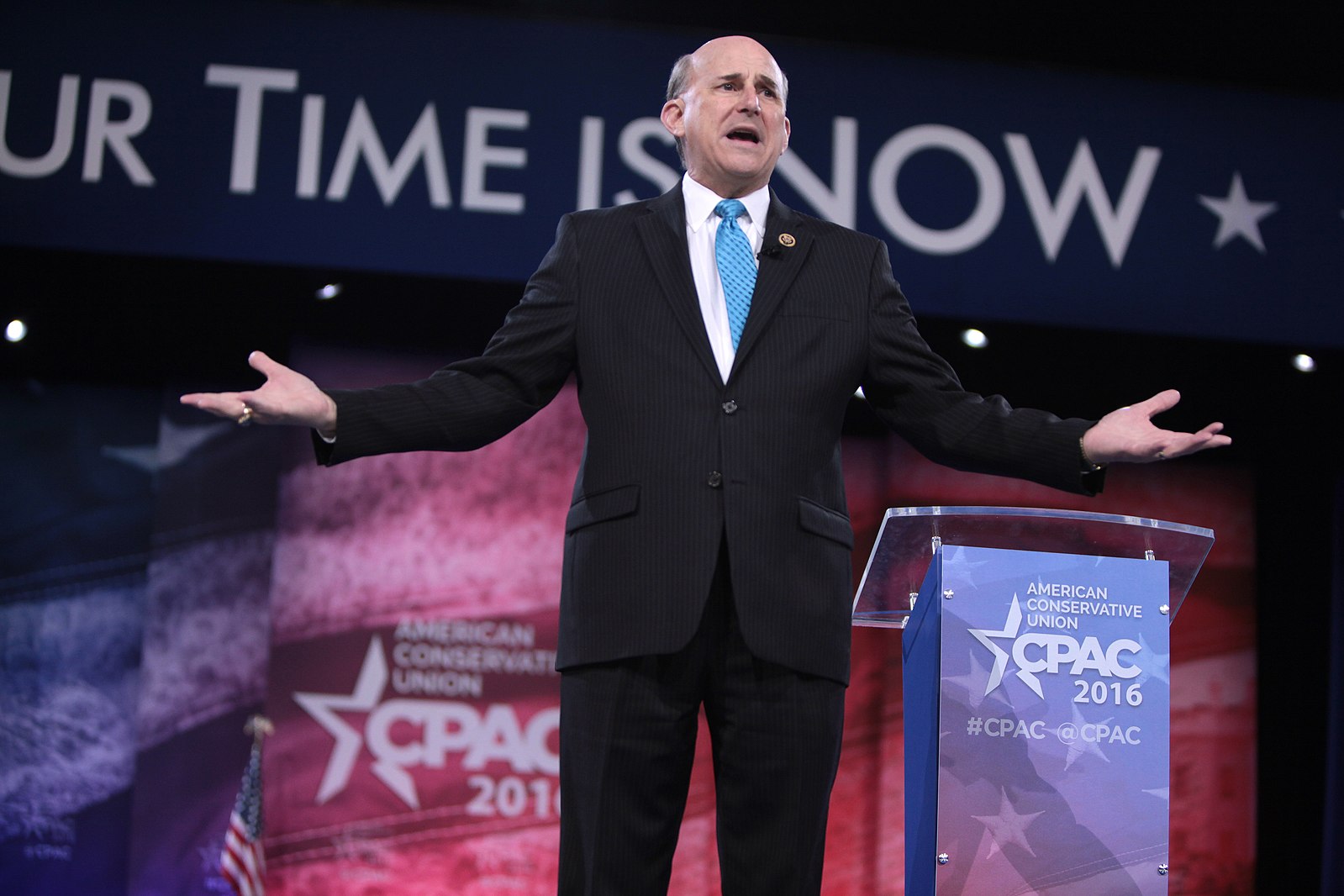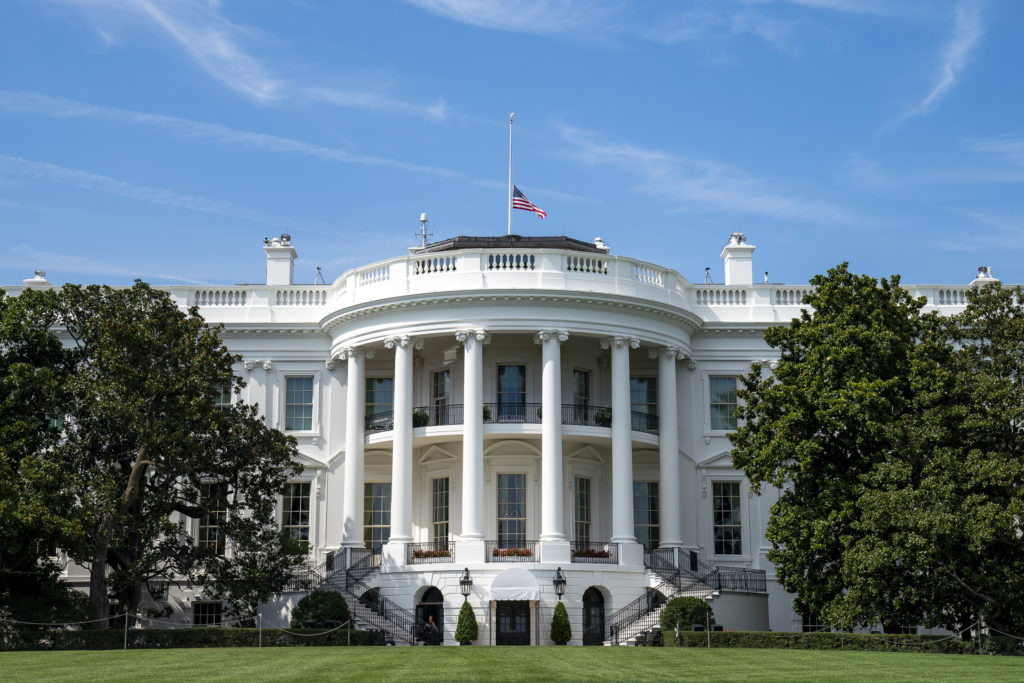Counting Ballots and Stealing Elections
If Republican legislators object to the counting of electoral votes for Biden, they will be assisting Trump’s brazen effort to steal an election.

Published by The Lawfare Institute
in Cooperation With

On Jan. 6, the vice president, in his constitutional role as president of the Senate, and the members of Congress will gather together in the capitol building and do their constitutional duty. We have now reached the final step in the constitutional process of selecting a president.
The presidential electors have already met and voted in their respective states; they have made a record of their votes; and they have sealed, certified and transmitted those votes to the president of the U.S. Senate. As the Constitution requires, the “President of the Senate shall, in the presence of the Senate and the House of Representatives, open all the certificates and the votes shall then be counted.” This solemn ceremony has been conducted for more than 200 years, and it should be a celebration of American democracy and the peaceful transfer of power. In 2021, this moment will instead be marred by farcical and ominous tones.
Republican Rep. Louie Gohmert has indicated that he will object from the floor to the counting of the electoral ballots in several battleground states. And he won’t be alone. What at first seemed like eccentric grandstanding will now reportedly be joined by more than a hundred of his Republican colleagues. Not to be outdone, Republican senator and likely presidential aspirant Josh Hawley announced that he too would object from the Senate side. Now at least 11 of his Republican Senate colleagues are likely to join him.
This won’t change the end result. By the end of the day on Jan. 6, Democratic candidate Joe Biden will still formally be declared to be the president-elect. So what will happen as a result of the grandstanding? Under existing statute, the objections raised from both the House and the Senate will trigger a debate in each chamber and a majority vote in each chamber as to whether or not to sustain the objection to the counting of any particular state’s electoral ballots. If even one chamber votes to overrule the objection—as the Democratic-controlled House will undoubtedly do—then the count will continue. The recognition of Biden’s electoral victory will be delayed, but it is inevitable.
The counting of the electoral votes in Congress has not quite been reduced to the same kind of mechanical process to which the casting of electoral votes at the meeting of the Electoral College has been. For almost the entire history of the country, the public has expected presidential electors to faithfully and without thought cast an official ballot for the candidate to whom they are pledged. Being a presidential elector is an honorary and ceremonial role and nothing more. Members of Congress, of course, are elected to exercise more discretion and responsibility. It’s not hard to make the case that Congress ought to also play a merely ceremonial role. Breaking from the ceremony would be extraordinary and might be justifiable in extreme circumstances. We are not in that kind of extreme circumstance.
Congress itself has taken the view, embodied in the Electoral Count Act of 1887, that there are circumstances in which Congress must deliberate on whether to count electoral ballots. That power can obviously be abused, and Congress has tried to create high barriers to exercising it and the decades of disuse should suggest strong norms against invoking it. Congress has indicated that it is in the states themselves that election controversies should be resolved.
The presidential election of 1876 posed the problem that eventually gave rise to the 1887 statute. In the midst of widespread and bipartisan accusations of election fraud, four states had disputed slates of presidential electors as the date approached for Congress to count the votes. The congressionally created Electoral Commission of 1876 was an ad hoc solution to that particular problem that no one wanted repeated. Other, more permanent changes, arose as a result of the chaos. Congress tried to anticipate the possibility that election disputes might drag out for weeks again. It created a “safe harbor” provision that set up a default acceptance of electoral votes when election disputes were resolved by the procedures laid down by the state at least six days before the electors voted. It specifies that the valid certificates of the electoral votes shall include the official list of electors certified by the governor. In the case of objections on the floor of Congress, even when there are purported alternative slates of electors, the votes of the presidential electors certified by the state executives in line with the safe harbor provision are in a privileged position to be counted.
What can explain the general principle of putting legislatures in charge of election dispute resolution? At the time that the Founders were drafting the Constitution and through most of the 19th century, the most natural assumption was that the democratically elected legislature would be the most trusted body for resolving election disputes. When there were contests over whether a member of Congress had been duly elected, it was the legislative chamber to which that member had been elected that would determine the electoral winner and seat that person. It was Congress where the votes of presidential electors would be opened and counted. But this logic fell apart as politics changed. With the emergence of political parties, having legislatures resolve election disputes began to make much less sense. It was increasingly obvious that the partisan legislative majority would be sitting as a “judge in its own case.” The majority would not simply be determining the fate of an individual politician; it would potentially be determining the immediate political fortunes of the party itself.
It seems unlikely that we would design the Constitution the same way today. The country has worked around it by relying on courts to arbitrate election disputes. In the Electoral Count Act, Congress itself suggested that states might use “judicial or other methods or procedures” to resolve controversies over the election of presidential electors, and states have generally followed through by adopting statutes that feature courts as the ultimate vehicle for resolving such controversies. It is not impossible that Congress might one day be forced to confront cases of disputed electoral votes in which the dispute had not been formally resolved through state procedures, but such a possibility is exceedingly unlikely.
The 2020 presidential election does not come close to creating such a situation in which Congress has a legitimate reason or need to deliberate on whether to count any electoral votes. Gohmert, who has advocated the view that the vice president could unilaterally set aside electoral votes, has baselessly asserted that “rampant fraud and unconstitutional actions” “stole this election” and that multiple states had “sent dueling slates of electors” to Congress. Hawley has suggested more of a protest vote, by which he would raise “the fact that some states ... failed to follow their own state election laws” and that “mega corporations” had effectively supported Biden. A group of Republican senators led by Ted Cruz has asserted that in light of “unprecedented allegations of voter fraud” Congress should “consider and force resolution” of those claims.
Every bit of this is the flimsiest of fig leaves for continuing President Trump’s efforts to overturn the results of the election. The “unprecedented allegations of voter fraud” and violations of state election law that underlie Gohmert’s objections to electoral votes are entirely imaginary. The allegations are unprecedented to the extent that they are fictional, and yet the Oval Office itself has persisted in shamelessly promoting them.
Far from being ignored, the Trump campaign has been given ample opportunity to prosecute such claims before election officials and state and federal courts. Campaign officials have been singularly ineffective in marshaling credible evidence of any significant irregularities and certainly of no irregularities that would alter the presidential election outcome in any state, let alone for the election as a whole. The campaign has lost an unprecedented number of lawsuits filed to challenge the election results. For federal legislators to lend credence to such claims by using them as a basis for objecting to electoral votes would be to simply feed rather than dispel partisan doubts about the legitimacy of the election. For federal legislators to use such baseless allegations as the grounds for throwing out electoral votes would be to announce that Congress can simply change the outcomes of presidential elections that a majority of the legislators do not like.
The premise of the objections to electoral votes is that there are alternative electoral slates from multiple states that need to be evaluated. The premise is false. No state sent more than one list of certified presidential electors to Congress. The election of presidential electors was certified by state officials in every state by the statutorily designated safe harbor date, and state governors certified in each state only one list of presidential electors. Only one slate of presidential electors met in each state to cast ballots in accordance with state law and affix the official certification from the governor in accordance with federal law. In some states, rogue groups of Republican politicians encouraged faux Republican electors to cast a ballot, but those “electors” were neither chosen in a manner directed by the state legislature nor even appointed directly by a vote of the majority of the state legislature. In no state did the state legislature take a formal vote to set aside the apparent result of the election and designate a pro-Trump slate of electors to act on the state’s behalf. If Congress were to give credence to such shams, then there is nothing stopping bad-faith activist groups in every future election from simply sending to Congress votes of a multitude of “presidential electors” and letting Congress choose whichever it prefers. It’s not hard to imagine the grounds of state capitols on the day of electoral voting crowded with gaggles of “electors” enjoying no basis of legitimacy except for their own assertion that they represent the true will of the people of their respective states.
Gohmert has proposed the most radical remedy of simply having the vice president count the electoral ballots he likes and ignoring the ones that he does not. Procedurally, the proposal is not in keeping with the details of the Twelfth Amendment, which specifies that the vice president “shall open all certificates and the votes shall then be counted.” The vice president is only given the job of opening certificates, and the directive is mandatory that he will open them all and that the votes therein will be counted.
The proposal is inconsistent with federal statute, which fleshes out the Twelfth Amendment’s directive that the votes shall “be counted” by specifying that tellers appointed by each chamber will do the actual counting of electoral votes and will report the count to the vice president, who shall simply “announce” the result. The Electoral Count Act is surely not the only way to realize the Twelfth Amendment’s directive, but it is, to this degree, fully consistent with the constitutional text. Substantively, the idea that the vice president has complete discretion over whether or not to count electoral votes is wildly inconsistent with our entire history of constitutional practice, and it would make a mockery of democratic ideals to give a potential candidate in the election the discretionary authority to determine who won the election.
The remedies proposed by Hawley and Cruz are hardly better. They posit a world in which a majority of the members of Congress could simply choose to ignore election results that they do not like and throw out the votes for the opposite party. If Congress can ignore all evidence because a sitting president and his supporters make unsubstantiated allegations of fraud in order to install that president in a second term, then we are best living in a parliamentary system rather than a system with an independently elected president. In this arrangement, rather than respecting the results of state elections and the determinations of duly elected state officials, the majority of the national legislature could ignore inconvenient results from the Electoral College. A majority of the members in Congress in 2016 could have determined that they would really prefer that the winner of the national popular vote be awarded the presidency, regardless of the electoral vote recorded in the states, or that they were sufficiently concerned about Trump’s fitness for office or relations to Russia to deny him his apparent victory. Their proposal unleashes Congress from the constitutional responsibility of formally recording the results of the vote of the Electoral College and empowers it to announce the president that it would prefer. The Constitution lays out procedures for Congress choosing the president and vice president when the Electoral College has failed to make a choice. The proposal advanced by the Republican senators would have Congress choose the president even when the Electoral College—which is to say, the American citizenry that voted for presidential electors in November—has made a choice.
Even if the Republican legislators want some vehicle for seriously and honestly examining irregularities in the 2020 elections and the proper conduct of elections in the future, objecting to the counting of electoral votes is hardly the proper vehicle for doing so. Of course, there has already been ample opportunity for evaluating such claims, and they have been repeatedly and firmly rejected by every forum that has heard them. At best, congressional rules provide for a brief window of debate on objections lodged by a member of the House and a member of the Senate to a particular state’s purported electors. This is hardly a helpful process for accessing allegations of massive fraud or proper electoral procedures.
Congress has an established process for collecting and evaluating evidence. Members of the Republican-controlled Senate could have held investigative committee hearings at any time to take evidence regarding such claims and to consider legislative reform to insure fair elections in the future. They could still do so in the coming months. If one really wanted to reassure members of the public that no stone has been left unturned in the search for voting irregularities, better mechanisms for doing so are available to members of Congress than issuing press releases, tweeting and casting protest votes.
But perhaps the objections to the counting of the electoral votes should simply be regarded as a meaningless political stunt. Members of Congress engage in such posturing all the time. They issue public statements that allow them to express sentiments popular with their constituents but that have no policy consequences. They take messaging votes on bills that they know have no chance of passage or that will be vetoed. They even cast votes on legislation that they fully expect will be struck down by courts as unconstitutional. Legislators frequently posture in public without responsibility. Gohmert, Hawley and Cruz know that their objections will not be sustained by a majority of both chambers of Congress. They know that, despite their objections, all the votes will be counted and Biden will be declared the president.
No harm, no foul, some might say. If one casts a vote to steal an election but one knows the vote will not carry the day, can one really be said to be trying to steal the election? But there is harm in such stunts.
The objections will strengthen rather than dissipate the groundless belief of some partisans that Biden somehow stole the election. Rather than countering the president’s false claims that the election was stolen, such maneuvers on the floor of the Congress lend them credence and allow them to fester and grow. Meanwhile, they further break down norms of constitutionally appropriate behavior so as to encourage future legislators to behave in a similarly irresponsible fashion. Can it be said that there is no harm if every presidential election season henceforth involves large numbers of legislators from the losing party taking every available step to prevent the recognition of the rightful electoral winner? Will there only be harm when the attempt at some point succeeds and the loser is declared the winner and assumes the powers of the presidency?
But even as a political messaging exercise, what exactly is the message? Are these congressional Republicans telling voters that if they elect enough like-minded politicians, then a majority coalition would be willing and able to overturn the result of a presidential election? Is the message that every future presidential election is up for grabs when Congress meets to “count” the votes and that election results are simply contingent on who holds the majority in Congress? This is hardly the message that any responsible politician should be sending in a constitutional democracy. No democratic political system can function in that way.
It has now been revealed that the president attempted to bully the governor of Georgia into changing the presidential vote count for no other reason than that the president wanted it. It is hard to imagine a more flagrantly corrupt action on the part of a losing president short of simply attempting to bribe presidential electors or forcibly seizing ballots. If Republican legislators object to the counting of electoral votes for Biden, it is this brazen effort to steal an election that they will be assisting. Their attempted assistance might be as practically futile as the president’s phone call itself was. They might not actually succeed in stealing the election. But their objections to the counting of properly certified ballots can hardly be interpreted as anything other than a desire to do so.





